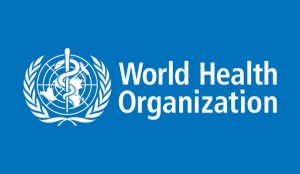Wednesday, 30 November 2022: The Minister of Finance, Mr Enoch Godongwana, has amended the Schedules in the Financial Intelligence Centre Act, 2001 (Act 38 of 2001) (FIC Act), which comes into effect from 19 December 2022.
The amendments, contained in Government Gazette 47596 [http://www.fic.gov.za/Documents/GG%2047596%20-%2029%20Nov%202022%20(002).pdf] published on 29 November 2022, relate to changes affecting accountable institutions listed in Schedule 1, supervisory bodies listed in Schedule 2, and reporting institutions listed in Schedule 3 of the FIC Act. National Treasury, on behalf of the Minister, published proposed amendments to the Schedules in Government Gazette No 43447 on 19 June 2020 for comment.
The Minister made these amendments following several years of consultation between the Financial Intelligence Centre (FIC) and affected sectors, industry bodies and supervisory bodies. Where relevant, comments provided by the sectors were taken into consideration and the amendments re-drafted. The Minister approved the tabling of the amendments in Parliament for consideration and approval on 30 March 2022 and, on 17 May 2022 they were tabled. Parliament’s Standing Committee on Finance and Select Committee on Finance held public hearings and adopted reports approving the amendments. Both Houses of Parliament subsequently approved the amendments.
Closing gaps in sectoral coverage
The changes will significantly increase the number of sectors included as accountable institutions in Schedule 1 to the FIC Act. This increased sectoral coverage will enhance anti-money laundering, combating the financing of terrorism and countering proliferation financing (AML/CFT/CPF) supervision and monitoring, thereby addressing the scope of coverage weaknesses identified in the 2009 and 2019 Financial Action Task Force (FATF) mutual evaluations of South Africa.
In meeting their FIC Act risk and compliance obligations, the additional sectors will improve the FIC’s ability to obtain information concerning the financial activities of customers from a wider range of financial, non-financial institutions, and crypto asset service providers (CASPs). Furthermore, this will enrich and help augment the quality of financial intelligence reports the FIC provides to law enforcement, supervisory bodies, and policy formulating entities.
With the amendment to the Schedules, new designated items consisting of co-operative banks, company service providers, a wider category of credit providers, high-value goods dealers, the South African Mint Company, CASPs, informal money or value transfer providers (hawaladars), and payment clearing service operators are now included in Schedule 1 of the FIC Act.
The inclusion of these sectors as accountable institutions will align South Africa’s AML/CFT/CPF framework more closely with standards set by the Financial Action Task Force (FATF), the global money laundering and terrorist financing watchdog. FATF, of which South Africa is a member, sets international standards and measures for combating money laundering, the financing of terrorism and proliferation financing.
The new sectors will be required to register with the FIC as accountable institutions and fulfil certain regulatory obligations. These include implementing customer identification and verification, customer due diligence, appointing a compliance officer, training employees on FIC Act compliance and ML/TF/PF risk exposure, undertaking business risk assessments for ML/TF/PF, and maintaining and implementing a risk management and compliance programme.
Accountable institutions are also required to file regulatory reports relating to suspicious and unusual transactions, cash transactions exceeding the prescribed threshold and on property that is linked to sanctioned persons, terrorist activity or terrorist organisations.
Items amended which widen the scope
Some of the amendments relate to widening of the scope of activities of businesses under Schedule 1. These include item 2 (trust and company service providers), item 11 (credit providers), item 19 (money or value transfer providers which includes informal money remitters). Amendments to widen the scope of these items also ensure alignment with the FATF standards.
Similar to existing accountable institutions, all new Schedule 1 accountable institutions, will be required to fulfil FIC Act risk and compliance obligations, which entail implementing a risk-based approach to combating money laundering and terrorist financing.
Removal of Schedule 3 reporting entities
As a consequence of the inclusion of high-value goods dealers as a category of accountable institutions, items under Schedule 3 to the FIC Act are removed. Schedule 3 lists motor vehicle dealers and Kruger rand dealers as reporting institutions. Certain entities that fall under these two categories of reporting institutions will now be included in the new category of high-value goods dealers in Schedule 1 of the FIC Act. High-value goods dealers include businesses dealing in high-value goods receiving payments in any form of R100 000 or more per item, whether payment is a made in a single transaction or more transactions.
Change in supervisory oversight and enforcement
The amendments will also bring about changes to the supervisory body structure. The FIC will oversee and enforce FIC Act risk and compliance adherence among non-financial sectors including trust and company service providers, legal practitioners, high-value goods dealers, South African Mint Company, CASPs, and credit providers.
Furthermore, technical amendments have been made to some items to bring the Schedules in line with changes to various laws such as the Financial Sector Regulation Act, 2017 (Act 9 of 2017) and the Legal Practice Act, 2014 (Act 28 of 2014).
Transitional supervisory approach
In the first 18 months from the date of commencement of the amendments, the FIC and supervisory bodies will focus on entrenching the FIC Act risk and compliance provisions and implementation among the new sectors in Schedule 1 to the FIC Act. Supervisory bodies will conduct inspections and, where warranted, issue remedial administrative sanctions, based on a risk-based approach, to correct identified areas of non-compliance. In respect of the new sectors, the FIC and supervisory bodies do not envisage issuing financial penalties for non-compliance with the FIC Act during the transitional 18-month period.










